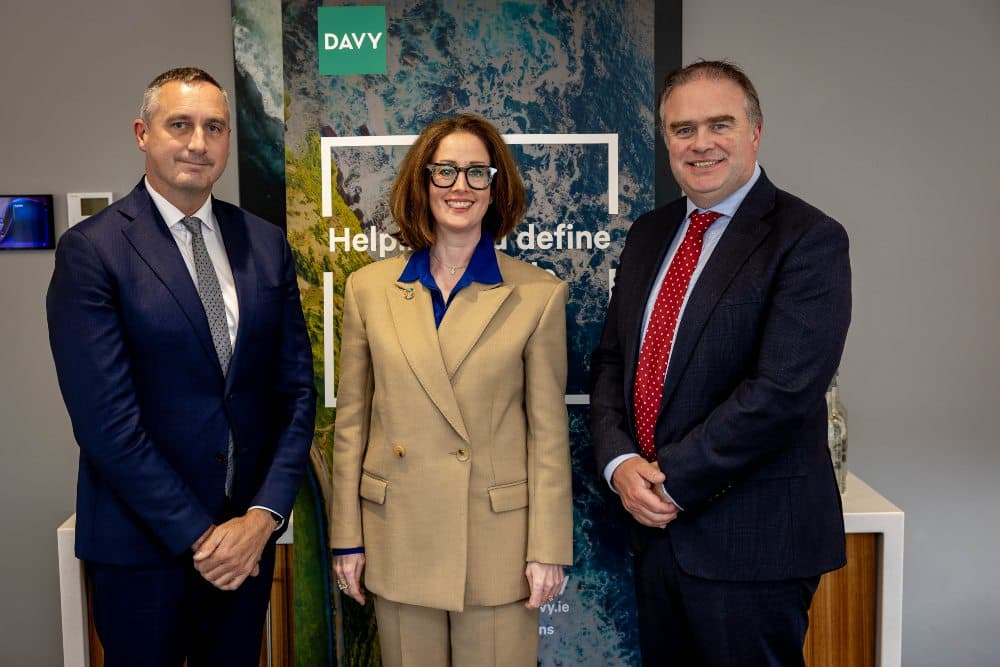The creation of a biomethane sector in Ireland represents a €1.6bn investment opportunity and will provide economic opportunities to rural communities.
When we think of renewable energy we primarily think of wind and solar electricity generation. But there is a third force on the horizon in the form of biomethane gas generation.
Biomethane gas generated from Irish farms has the capacity to achieve 10% of fossil gas use in Ireland by 2030 rising to 50% within a decade, Agriculture Minister Charlie McConalogue told a Davy and Bank of Ireland event ‘Supporting Ireland’s Sustainable Food & Farming Transition.’
“The creation of a national biomethane strategy is to support the delivery of the ambitious target of up to 5.7 terrawatt hours of indigenously produced biomethane by 2030”
Not only that but the creation of a biomethane industry with the support of Ireland’s farming community could accelerate the reduction of the agri sector’s carbon emissions and meet its climate action targets sooner.
Biomethane could unleash billions’ worth of Irish innovation
Bank of Ireland head of Agri Sector Eoin Lowry with Dr Dorothy Maxwell from Davy Horizons and John McNamara, head of Corporate Sustainability at Bord na Móna
At the event Bank of Ireland published its report ‘Supporting Ireland’s Sustainable Food & Farming Transition’ while Davy published its report ‘The Role and Contribution of Biomethane in Decarbonising the Agriculture Sector’.
According to the Bank of Ireland report if the agri sector aims to achieve a 25% reduction targeted in the Climate Action Plan, farmers will need to focus on reducing nitrous oxide from fertilisers as well as methane from livestock, converting farm waste and feedstock into biomethane and decarbonisation, not to mention the carbon sequestration of land, peat and afforestation.
The investment needed by the sector to achieve these measures will be as high as €4.3bn.
Key to this will be the development of an indigenous biomethane industry that converts farm waste and feedstock to energy. The report says that this element will not only be key to the success of the agri sector meeting its climate targets but also a significant private investment opportunity.
The investment for this is estimated at €1.6bn assuming a community-scale industry across co-operatives and farms. This would not only reduce greenhouse gas emissions but also provide economic opportunities to rural communities and usher in sustainable food and livestock innovations and techniques.
The Davy report points out that biomethane can play a dual role in decarbonising the agri sector, which accounted for more than one-third of Ireland’s greenhouse gas emissions in 2021 and act as a renewable fuel to decarbonise the grid.
In Ireland a target of 5.7 terawatt hours (TWh) by 2030 has been set which will make up 10% of the national gas demand by 2030.
There are currently two biomethane gas facilities injecting biomethane into the Gas Network Ireland grid and 43 biogas facilities generating heat and electricity.
A €1.5bn investment to cultivate a biomethane sector would create 100 small biomethane facilities and up to 35 larger facilities.
Speaking at the Davy/Bank of Ireland event, the head of Corporate and SME Banking at Bank of Ireland Michael Lauhoff said that the Bank is one of the oldest lenders to the Irish agri sector and counts more than 82,000 farms among its customers, including €4bn worth of lending of which €1bn is at farm level.
“We’re very proud of our long-standing footprint across the country in supporting agri families and multiple generations with their farming enterprises. That vantage point gives line of sight of the challenges that are faced across the sector. To support navigating these challenges, the aim of these reports are to raise awareness of the issues, the solutions but also the investment that is required and show practical examples of businesses that are already taking action.”
Agriculture Minister Charlie McConalogue, TD, told the event that farmers need not be worried about EU targets for land rewetting as capacity from State-owned land is sufficient to meet Ireland’s rewetting obligations by 2050.
The Minister described the challenges faced by the agri sector to meet climate targets while maintaining the production of high quality food as complex but also an opportunity.
“The creation of a national biomethane strategy is to support the delivery of the ambitious target of up to 5.7 terrawatt hours of indigenously produced biomethane by 2030 set by the Government as part of its Climate Action Plan. This target is equivalent to 10% of current usage of fossil gas. However, this will rise to over 50% by the mid 2030s as we shift our economy away from gas in favour of electrification.
“From an agriculture perspective I can identify clear benefits in terms of contributing to the delivery of a renewable energy targets and providing alternative land use options for farmers.
“Alongside opportunities for a low carbon renewable energy source, farm income and land use diversification options for farmers, the anaerobic industry also represents a pathway for farmers to reduce fertiliser usage through the increased availability of digesting. Sustainable anaerobic digestion projects offer many broad national environmental benefits. Therefore the wider uptake of farm-based anaerobic digestion projects may have a part to play.”
He said a National Biomethane Capital Grant worth €40m will help support the initial roll-out of a biomethane sector.
Bank of Ireland’s head of Agri Sector Eoin Lowry told the event that the Bank’s report was not only about recognising challenges facing the sector in terms of meeting climate targets but also identifying opportunities that will come from the transition.
“There is no doubting the scale of the transition required, but Bank of Ireland recognises the key role that agriculture plays in powering this change and will continue to support farmers on this journey. Bank of Ireland is providing farmers with the targeted financial supports they require like our Enviroflex loans and is proud to be leading the way in this regard. Enhanced sustainable farming practises and the increased development of the biomethane sector are vital parts of the overall solutions required, and we will continue to work with a variety of stakeholders to ensure a low emissions future is achieved.”
Davy Horizons’ Dr Dorothy Maxwell said that the key to the agri sector embracing the transition to a sustainable future is to realise that it is about navigating environmental, societal and economic ambitions and figuring out how to balance those ambitions.
The reports, she said, articulate the investment and innovation opportunities. “Multiple actors are impacted from farmers and agri businesses to retailers, from SMEs to PLCs.”
She added that in all of this businesses have to navigate a complex landscape of policies from food to climate to water pollution, biodiversity and now bioenergy.
“Innovation is important. We all know that Ireland’s Climate Action Plan target for agriculture requires a 25% reduction in our greenhouse gases by 2030 and that’s a really big target. But if we look at the cost of that across the different sectors up to 65% of that comes from on-farm. It’s not the only part of the economy and examples of that would be the reduction of nitrous oxide from fertilisers, the reduction of methane and livestock and deeper diversification activities.
“26% of that target can be achieved by converting farm waste and feedstock into biomethane, and hence this is a big benefit. 10% can be achieved by carbon sequestration on the land and afforestation. So when you think of that in the bigger picture, there are multiple aspects in play here.”
Dr Fergal McNamara, Davy Corporate Finance, added: “The development of an indigenous biomethane sector in Ireland will contribute to the decarbonisation of the agriculture and the natural gas sectors which in turn can assist decarbonising other hard-to-abate sectors. This is in keeping with EU policy set out in “REPower EU” where a target of 8x growth across the continent has been set for 2030, requiring a €37bn investment. Ireland is well recognised for its potential in this sector, and we estimate the investment required to meet the Irish Government’s target of 5.7 TWh by 2030 to be of the order of €1.5 billion. The sector is the subject of national policy with the recently published National Biomethane Strategy.”
-
Bank of Ireland is welcoming new customers every day – funding investments, working capital and expansions across multiple sectors. To learn more, click here






